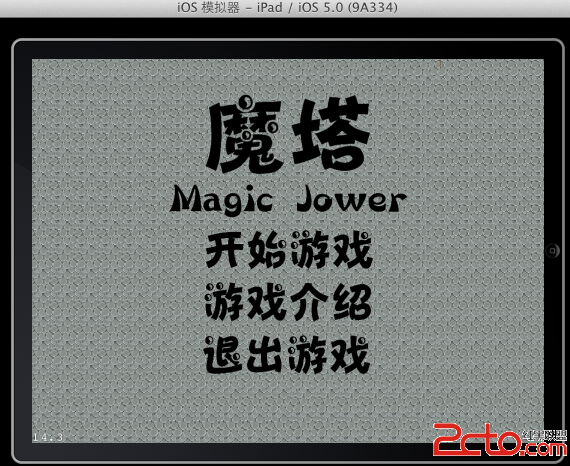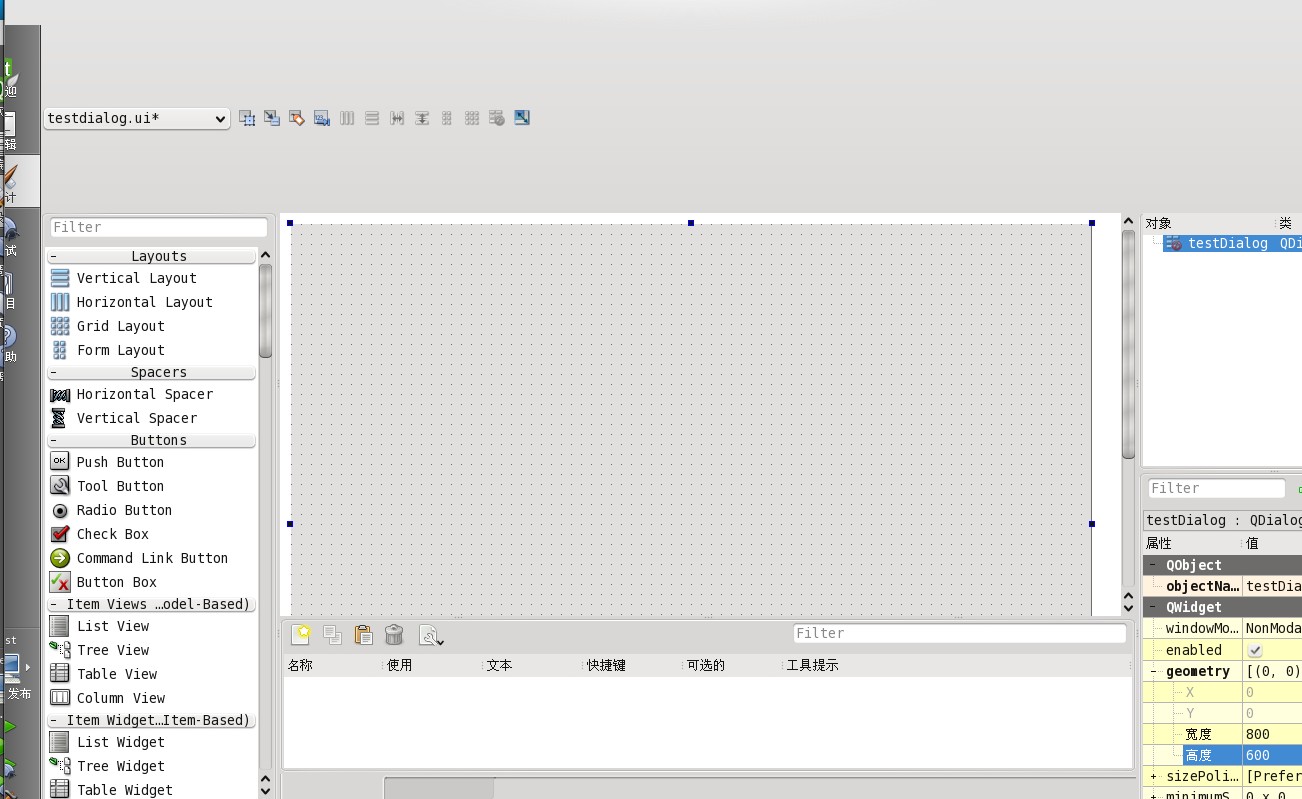iOS瀑布流视图控件"quilt"的用法
1000memories已经在MIT协议下开源了它的iOS瀑布流视图控件"quilt"。
瀑布流(quilt)-以不同的纵横比在多个列中显示图片和媒体,是1000memories网站、iPhone和Android版ShoeBox的设计美学核心。它给了用户一种真实相册的感觉并强调了老照片的美。
好吧,上面两段话是摘抄过来的,算是开场白,我们直接入正题好了。
"quilt"的用法:
1.首先去github上下载开源的代码吧。
2.你会发现下载下来的代码中有好几个文件夹,将下面路径下的6个文件直接拖拽到你的工程里(不用像demo中添加那么多):
3.去往你要实现的类,在头文件中添加如下代码:
[csharp]
#import <UIKit/UIKit.h>
#import "TMQuiltView.h"
@inte易做图ce WaterFlowVC : UIViewController<TMQuiltViewDataSource,TMQuiltViewDelegate>
{
TMQuiltView *_tmQuiltView;
NSMutableArray *_images;
}
@property (nonatomic,retain)TMQuiltView *tmQuiltView;
@property (nonatomic,retain)NSMutableArray *images;
@end
#import <UIKit/UIKit.h>
#import "TMQuiltView.h"
@inte易做图ce WaterFlowVC : UIViewController<TMQuiltViewDataSource,TMQuiltViewDelegate>
{
TMQuiltView *_tmQuiltView;
NSMutableArray *_images;
}
@property (nonatomic,retain)TMQuiltView *tmQuiltView;
@property (nonatomic,retain)NSMutableArray *images;
@end
其中tmQuiltView就是1000memories他们定义的瀑布流控件了,类似于tableView(从添加的协议就可以看的出来很像),_images是个数据源,存放图片的数组。
4.再去.m文件实现数据源和代理:
[csharp]
#pragma mark -
#pragma mark TMQuiltViewDataSource
-(NSInteger)quiltViewNumberOfCells:(TMQuiltView *)TMQuiltView
{
return [self.images count];
}
-(TMQuiltViewCell *)quiltView:(TMQuiltView *)quiltView cellAtIndexPath:(NSIndexPath *)indexPath
{
NSString *identifierStr = @"photoIdentifier";
TMPhotoQuiltViewCell *cell = (TMPhotoQuiltViewCell *)[quiltView dequeueReusableCellWithReuseIdentifier:identifierStr];
if (!cell)
{
cell = [[[TMPhotoQuiltViewCell alloc] initWithReuseIdentifier:identifierStr] autorelease];
}
cell.photoView.image = [self imageAtIndexPath:indexPath];
cell.titleLabel.text = [NSString stringWithFormat:@"%d", indexPath.row + 1];
return cell;
}
#pragma mark -
#pragma mark TMQuiltViewDelegate
//列数
- (NSInteger)quiltViewNumberOfColumns:(TMQuiltView *)quiltView
{
return 2;
}
//单元高度
- (CGFloat)quiltView:(TMQuiltView *)quiltView heightForCellAtIndexPath:(NSIndexPath *)indexPath {
float height = [self imageAtIndexPath:indexPath].size.height / [self quiltViewNumberOfColumns:quiltView];
return height;
}
#pragma mark -
#pragma mark TMQuiltViewDataSource
-(NSInteger)quiltViewNumberOfCells:(TMQuiltView *)TMQuiltView
{
return [self.images count];
}
-(TMQuiltViewCell *)quiltView:(TMQuiltView *)quiltView cellAtIndexPath:(NSIndexPath *)indexPath
{
NSString *identifierStr = @"photoIdentifier";
TMPhotoQuiltViewCell *cell = (TMPhotoQuiltViewCell *)[quiltView dequeueReusableCellWithReuseIdentifier:identifierStr];
if (!cell)
{
cell = [[[TMPhotoQuiltViewCell alloc] initWithReuseIdentifier:identifierStr] autorelease];
}
cell.photoView.image = [self imageAtIndexPath:indexPath];
cell.titleLabel.text = [NSString stringWithFormat:@"%d", indexPath.row + 1];
return cell;
}
#pragma mark -
#pragma mark TMQuiltViewDelegate
//列数
- (NSInteger)quiltViewNumberOfColumns:(TMQuiltView *)quiltView
{
return 2;
}
//单元高度
- (CGFloat)quiltView:(TMQuiltView *)quiltView heightForCellAtIndexPath:(NSIndexPath *)indexPath {
float height = [self imageAtIndexPath:indexPath].size.height / [self quiltViewNumberOfColumns:quiltView];
return height;
}
数据源和代理方法需要的就这么多,有其它需求可以跳转到定义数据源和代理的类看一下。给出的demo中将
-(NSArray *)images和- (UIImage *)imageAtIndexPath:(NSIndexPath *)indexPath两个方法也写在了数据源中,注意这两个方法不是数据源的方法。
其中TMPhotoQuiltViewCell是我直接从demo中拷贝出来的自定义的单元,你可以根据自己的需求将其改成你想要的外观。
代理方法与tableview的代理很是相似,所以也很容易懂。
5.最后是一些需要定义的变量了:
[csharp]
- (void)viewDidLoad
{
[super viewDidLoad];
self.view.backgroundColor = [UIColor blackColor];
_tmQuiltView = [[TMQuiltView alloc] init];
_tmQuiltView.frame = CGRectMake(0, 0, 320, [[UIScreen mainScreen] bounds].size.height-20-44);
_tmQuiltView.delegate = self;
_tmQuiltView.dataSource = self;
[self.view addSubview:_tmQuiltView];
[_tmQuiltView reloadData];
NSMutableArray *imageNames = [[NSMutableArray alloc] init];
for (int i = 0; i< kNumberOfCells;i++ )
{
[imageNames addObject:[NSString stringWithFormat:@"%d.jpeg",i % 10 + 1]];
}
self.images = imageNames;
[imageNames release];
[_tmQuiltView reloadData];
}
补充:移动开发 , IOS ,





